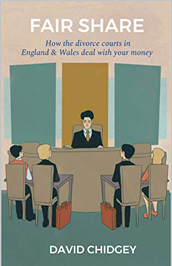Collaborative Law v Adversarial Law

- This blog contains affiliate links, which we may receive a commission for purchases. The decision is yours, whether or not you decide to buy.
Collaborative law is one of the processes that a couple can use to resolve matters after separation, including in relation to finances and children. The collaborative process itself requires each party to appoint a collaborative lawyer and then all four sign up to an agreement to try and resolve matters in a constructive way and without court proceedings.
The lawyers’ commitment extends to not representing their clients in the event that the clients do, in future, opt for court proceedings. A series of four way meetings then takes place with both of the couple and each of their lawyers being present throughout.
This enables options to be fully explored with the benefit of legal advice. In complex cases people may prefer collaboration to mediation because the advice is immediately available, although note this is also an option if lawyers attend mediation.
In contrast, if either or both opt for the adversarial approach, the decision making is ultimately delegated to a judge if an agreement is not reached before the final hearing. Collaborative law is becoming increasingly popular with those wanting to avoid the cost, acrimony and delay of court proceedings.
If a couple are communicating well and share priorities, for example keeping the children in private school or not selling a home, the negotiations can ensure that these priorities are met if possible. By contrast, with the adversarial court approach, a judge may decide that something is simply not affordable and therefore make a decision that means it is not possible.
Collaborative law is normally significantly cheaper than the adversarial approach because it is not necessary to book barristers for hearings, although in difficult cases one or two barristers who are collaboratively trained may become involved to assist with reaching an agreement.
Ultimately, where both of the couple are intending to leave their estate to the children it cannot make sense to effectively give money to lawyers which could instead form part of the children’s inheritance.
Collaboration is also normally quicker because the couple have control over the timetable, i.e. when the meetings take place, whereas with court proceedings you are dependent on when the court list the hearings to take place and, even then, it is possible to turn up for a hearing and find that a judge is not available, having incurred significant costs being represented at court. These abortive costs are very frustrating.
As a result, some people going through the adversarial approach opt for arbitration instead which is written about in more detail separately, but is an alternative to those wishing to adopt an adversarial approach.
Obviously being able to resolve matters without the court’s input is dependent on both parties being willing to cooperate. If the other party is not willing to communicate and/or is entrenched in a position that is not acceptable, then ultimately there is no choice but to litigate and commence court proceedings.
There is no point going through the motions of attending mediation or collaborative meetings if you know that these are not going to achieve a settlement.
Ultimately, there are various ways of resolving cases and it is a question of finding the right approach for you, and the one that will hopefully lead to a resolution that is acceptable to you without unnecessary delay and expense. Do discuss with your lawyer the various options before making a decision.
Written by Kirstie Law Solicitor, Collaborative Lawyer and Mediator at Thomson Snell & Passmore. www.ts-p.co.uk
PHOTO CREDIT: CHRIS POTTER
You may also like
Books
Buy now from Amazon
- The Co-Parenting Handbook
- Fair Share: How the divorce courts in England & Wales deal with your money
- The Book You Wish Your Parents Had Read THE #1 SUNDAY TIMES BESTSELLER
Podcast
Tamsin Caine is a Chartered Financial Planner and divorce specialist. Tamsin talks to professionals who can help you to make the right decisions about moving forward with your divorce to reach an amicable solution.
Articles
- 8 Ways You Can Stay Financially Fit After Your Divorce
- Five Things To Let Go Of After Divorce
- Buying A Home Post Divorce Part 1
Videos
Practical advice and tips from professionals on what to do with issues and challenges around divorce from parenting to finance.
Events
Practical tips & advice designed to help people going through divorce, whether online or in person.
Useful links
Here's a selection of organistaioins from parenting to finance to help you with your divorce.


.jpg)





.jpg)






